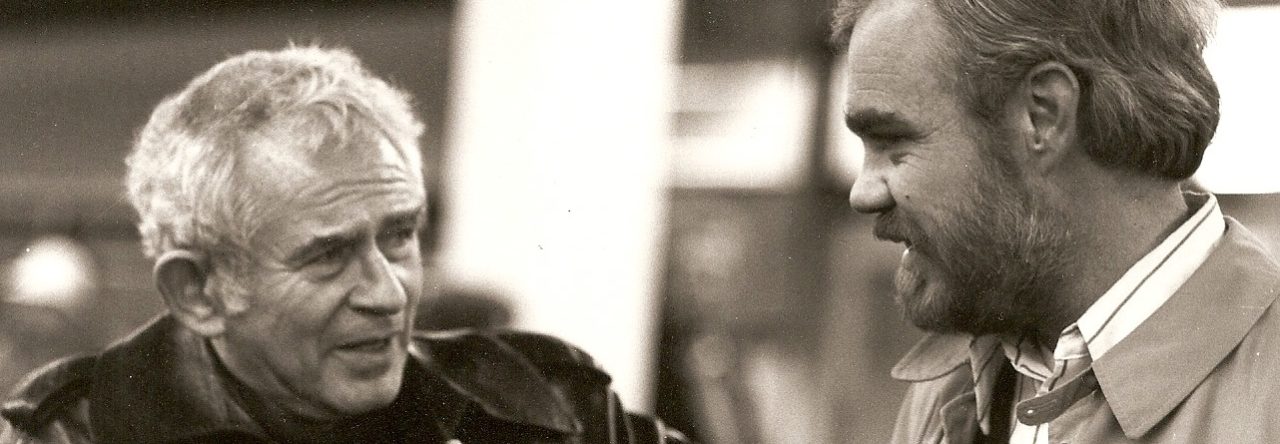The impetus to ask Norman Mailer if he would engage in discussion of his religious beliefs was a reading of an early draft of his novel The Castle in the Forest, sometime in the summer or early fall of 2002. Although his novels and narrative nonfiction back to the 1950s are shot through with his ideas on God and the Devil and the struggle in which they are locked, in those works, this material was there largely as a backdrop, a sort of cosmic context for the journeys and struggles of his characters. Before The Castle in the Forest, the direct interventions of angels and demons were surmises. But in that work, Dieter, an assistant to the Devil, changes everything. Now Mailer had invested his characters with his beliefs about the tripartite division of power in our solar system among God, the Devil, and humanity. Dieter, as we now know, narrates the novel and also communicates with the Devil, whom he refers to as the E.O. (Evil One). On a purely functional level, his choice of Dieter, who has powers verging on omniscience, allowed Mailer to retain a first-person voice and still have access to the thoughts of the Hitler family. After a half century of tantalizing his readers with glimpses of his quasi-Gnostic belief in the existential struggle between good and evil, Mailer decided to present a key battle in this war, one that took place in Austria at the end of the nineteenth century.
In the early 1980s, I wrote an essay on Mailer’s cosmology, and I remained persistent in my conviction of the importance of his idiosyncratic beliefs to serious readers of his work. So I was excited to read of the demonic and divine machinations surrounding Hitler’s birth and early life. Shortly after I read the first hundred pages of the novel in draft form, Mailer asked me to help on a fund-raiser for the Provincetown Theater. He wanted me to play a role in a staged reading of G.B. Shaw’s Don Juan in Hell. Mailer was to direct the play and take the part of Don Juan. His wife, Norris Church Mailer, was to play Don Juan’s wife, Dona Aña, and I was to play her father, the Commodore. Gore Vidal, in a brilliant bit of casting, was to take the part of the Devil. Shaw’s play is set in Hell, and the exchanges among the four characters, especially Don Juan and the Devil, gave me another slant on Mailer’s ideas. For the week of rehearsals preceding the one-night performance, my brain was on fire about the interplay between the ideas of Mailer and Shaw, not to mention the fascinating interplay between the two novelists who had feuded so famously in the 1970s yet were now collaborating. [The performance took place in the Provincetown Town Hall on October 12, 2002, and Vidal, wearing a dark blue suit with a red lining (which he displayed), stole the show.]
In the spring of 2003, I visited Mailer’s home in Provincetown and proposed that we begin the conversations collected here. He agreed immediately. His only proviso was that my questions remain with me until we met so that his answers would be spontaneous. (He once said that his favorite word was “improvisational.”) The first conversation took place on June 17, 2003, and they continued, sometimes six months apart, until June 14, 2006. All of them took place in the third-floor study of his house, where from the big window one can see the swerve of shore and bend of bay of Provincetown Harbor.
[On God has ten chapters:
- On God as the Artist
- God, the Devil, and Humankind
- Purgatory, Heaven, and Hell
- On the Authority of the Senses
- Saints
- Ritual and Telepathy
- Intelligent Design
- On Theodicy
- On Gnosticism
- Prayer]
